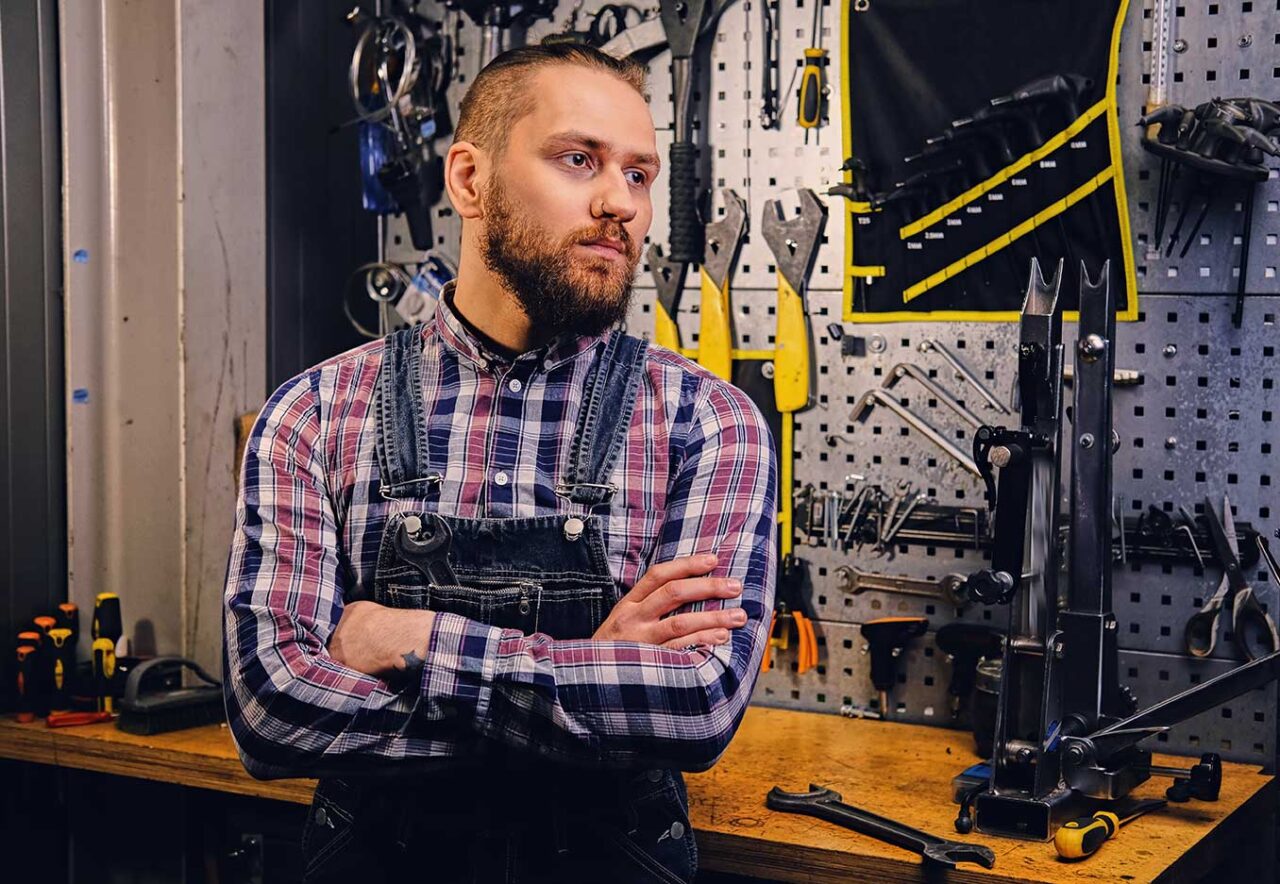Introduction
In the intricate world of machinery and production, there exists a cadre of skilled professionals known as mechanical fitters. These individuals are the unsung heroes behind the seamless operation of various industries, from aviation and manufacturing to automobile production. In this in-depth exploration, we will delve into the world of mechanical fitters, their roles, responsibilities, education, skills, and the critical contributions they make to our modern industrial landscape.
Chapter 1: Unveiling the Role of Mechanical Fitters
What is a Mechanical Fitter?
Mechanical fitters are engineering specialists who play a pivotal role in assembling, maintaining, and repairing the integral parts of machines and equipment across diverse industries. They are the architects of precision, ensuring that the gears of the sector run smoothly.
The Anatomy of a Mechanical Fitter’s Work
At the core of their profession, mechanical fitters deal with the assembly of machine components. They meticulously follow blueprints, schematics, and engineering drawings to align and secure parts according to exact specifications. Precision is the game’s name here, as even the slightest misalignment can significantly affect machine efficiency and safety.
In addition to assembly work, mechanical fitters are often required to utilize welding techniques, both gas and electric, to fuse various components. This welding expertise is vital when dealing with metals and other materials in constructing and repairing industrial equipment.
Furthermore, mechanical fitters handle the installation, repair, and maintenance of crucial components such as valves, tank linings, and lead pipes. Their work extends beyond assembling; it involves ensuring these vital systems operate flawlessly.
Chapter 2: The Skill Set of Mechanical Fitters
The Tools of the Trade
Mechanical fitters are masters of various tools and equipment. Thermal heating, cutting tools, drilling machines, and precision measuring instruments are their trusted companions. These tools enable them to carry out their duties with utmost accuracy and efficiency.
Problem Solving and Troubleshooting
A defining trait of mechanical fitters is their problem-solving prowess. They are the go-to experts in identifying and rectifying faults in manufacturing plants and equipment. Their sharp analytical skills allow them to diagnose issues promptly and provide effective solutions.
Collaboration and Interpersonal Skills
While they often work independently, mechanical fitters are not solitary figures. They must collaborate with colleagues, engineers, and supervisors to achieve common objectives. Effective communication and interpersonal skills are essential to ensure seamless teamwork.
Mathematical Acumen
Mathematics plays a significant role in the work of mechanical fitters. They need to make precise measurements, perform calculations, and interpret data accurately to achieve the perfect fit and ensure the optimal functioning of machinery.
Chapter 3: Mechanical Fitter Roles and Specializations
Mechanical fitting is a multifaceted field, with various roles and specializations tailored to specific industry needs. Let’s delve into a few of these specialized domains:
Fitting and Turning
One prominent specialization within mechanical fitting is fitting and turning. Here, artisans are responsible for constructing, fitting, and assembling equipment components. They skillfully employ hand tools and machinery to combine intricate metal pieces, creating functional machinery.
Pipefitting
Pipefitting is another crucial aspect of mechanical fitting. In this role, fitters attach pipes to fixtures, walls, and structures, such as radiators or tanks. It requires expertise in using brackets, welding tools, and clamps to ensure the pipes are securely and efficiently fitted in place.
Maintenance Fitting
Maintenance fitting is a specialized area where mechanical fitters focus on the upkeep and repair of factory equipment. Their responsibilities include identifying defective or worn-out parts that require replacement or modifications. Precise measuring instruments are employed to locate components that fit seamlessly and replace worn parts, ensuring the machinery’s smooth operation.
Chapter 4: Education and Skills Required
Educational Pathways
Becoming a mechanical fitter offers various educational pathways. These pathways include:
- College Courses: Aspiring mechanical fitters can pursue college courses to acquire the necessary skills. Options include a Level 2 Certificate in Mechanical Engineering or a Level 3 Certificate in Fabrication and Welding Engineering Technology. The entry requirements for these courses vary but generally involve having a certain number of GCSEs at specific grades. Diploma courses can also be a stepping stone, with options like a Level 2 Diploma in Maintenance or a T Level in Maintenance, Installation, and Repair.
- Apprenticeships: Intermediate apprenticeships are a popular route into the mechanical fitting profession. These include roles like engineer fitter and maintenance operations engineering technician. The entry requirements for apprenticeships are generally more flexible, often requiring any GCSEs, including math and English. Apprentices gain valuable work experience alongside their training, making it a practical choice.
- Work Experience: Besides formal education, hands-on work experience is invaluable for aspiring mechanical fitters. Vocational training and internships offer opportunities to gain practical experience and build crucial skills.
Skills and Competencies
To thrive as a mechanical fitter, a range of skills and competencies are required:
- Problem-solving Skills: As problem solvers, mechanical fitters need creativity to enhance machine efficiency and performance. They must have a structured approach to troubleshooting and problem resolution.
- Collaboration and Interpersonal Skills: Working alongside colleagues and team members is a common aspect of the job. Mechanical fitters need the ability to communicate effectively and work harmoniously with others.
- Mathematics Skills: The application of mathematics is pervasive in mechanical fitting. Accurate measurements and calculations are essential for precision work, error detection, and problem-solving.
Chapter 5: The World of Mechanical Fitters
Working Environment
Mechanical fitters typically operate in industrial settings such as factories, manufacturing plants, workshops, and even in the field when repairing equipment. These environments can range from noisy production floors to precise assembly areas.
Colleagues and Team Dynamics
Mechanical fitters collaborate with diverse teams. They work alongside fellow fitters, engineers, and supervisors to ensure the smooth operation of machinery and equipment. Effective communication and teamwork are essential to achieving common goals.
Work Schedule and Outlook
The work schedule of a mechanical fitter can vary. Some may have regular 9-to-5 hours, while others may be required to work shifts, weekends, or overtime to meet project deadlines or address maintenance needs. Overall, the outlook for mechanical fitters is promising, with stable employment opportunities across different industries.
Advantages of Finding a Mechanical Fitter Job Through Agencies
Job placement agencies like Randstad can be valuable resources for aspiring mechanical fitters. They provide access to many job opportunities, including those with leading companies and industries. Additionally, these agencies often offer benefits such as career guidance, professional development, and potential networking opportunities.
Chapter 6: The Monetary Aspects
Average Salary of a Mechanical Fitter
In the UK, mechanical fitters typically earn an average annual salary of £31,004. For those just starting, the average entry-level wage hovers around £29,509 annually. With experience, skilled mechanical fitters can see their earnings rise, reaching upwards of £32,866 per year. Many employers offer additional benefits like healthcare and accident insurance, recognizing the physically demanding nature of the job.
FAQS
What are the duties of a fitter?
A fitter’s duties involve assembling, installing, maintaining, and repairing mechanical components and systems to ensure efficient operation, spanning various industries.
What is the scope of a mechanical fitter?
Certainly! Mechanical fitters are essential professionals responsible for various tasks, from assembling and installing mechanical systems to repairing and maintaining equipment. Their expertise is invaluable in industries like manufacturing and construction. They specialize in fitting components, solving mechanical issues, and ensuring machinery operates efficiently and safely. Their role is crucial for the reliability and efficiency of mechanical systems in different applications.
What sets apart a mechanic from a mechanical fitter in their areas of expertise and work scope?
Certainly! Mechanics and mechanical fitters differ in their specialized areas and tasks. Mechanics are experts in vehicle maintenance, dealing with car and truck systems like engines, transmissions, brakes, and electronics. In contrast, mechanical fitters work across diverse industries, handling tasks like assembling and maintaining various machinery components. Their expertise spans fabricating, machining, and aligning mechanical parts. Despite both involving machine work, their unique skills set them apart in their specific fields.
What is a mechanical fitter and turner?
A mechanical fitter and turner is a highly skilled tradesperson specializing in assembling and machining components for machinery and mechanical systems. They excel in precise fitting and employ techniques such as drilling, grinding, and lathe turning to create accurate mechanical parts with precision and expertise.


